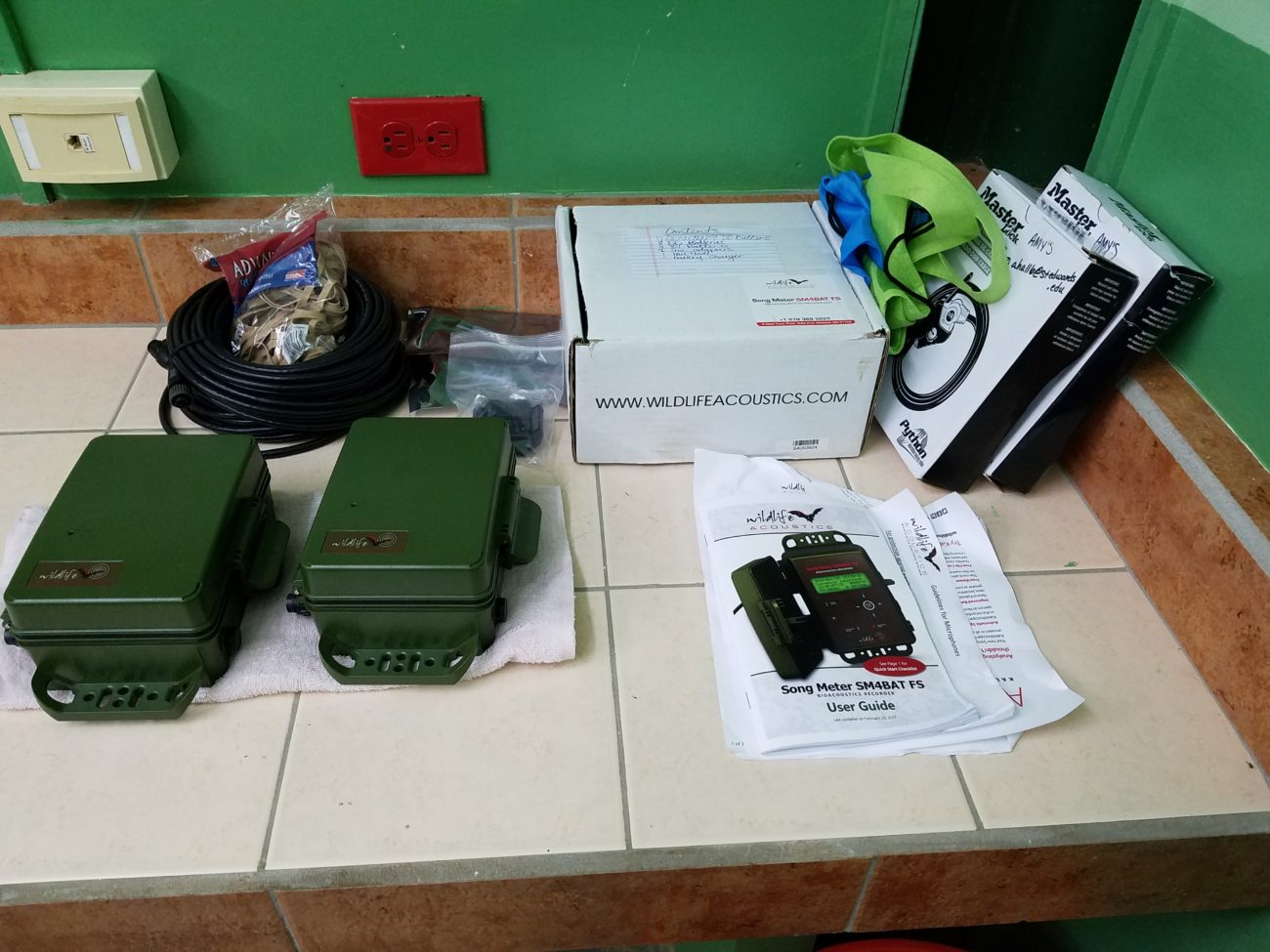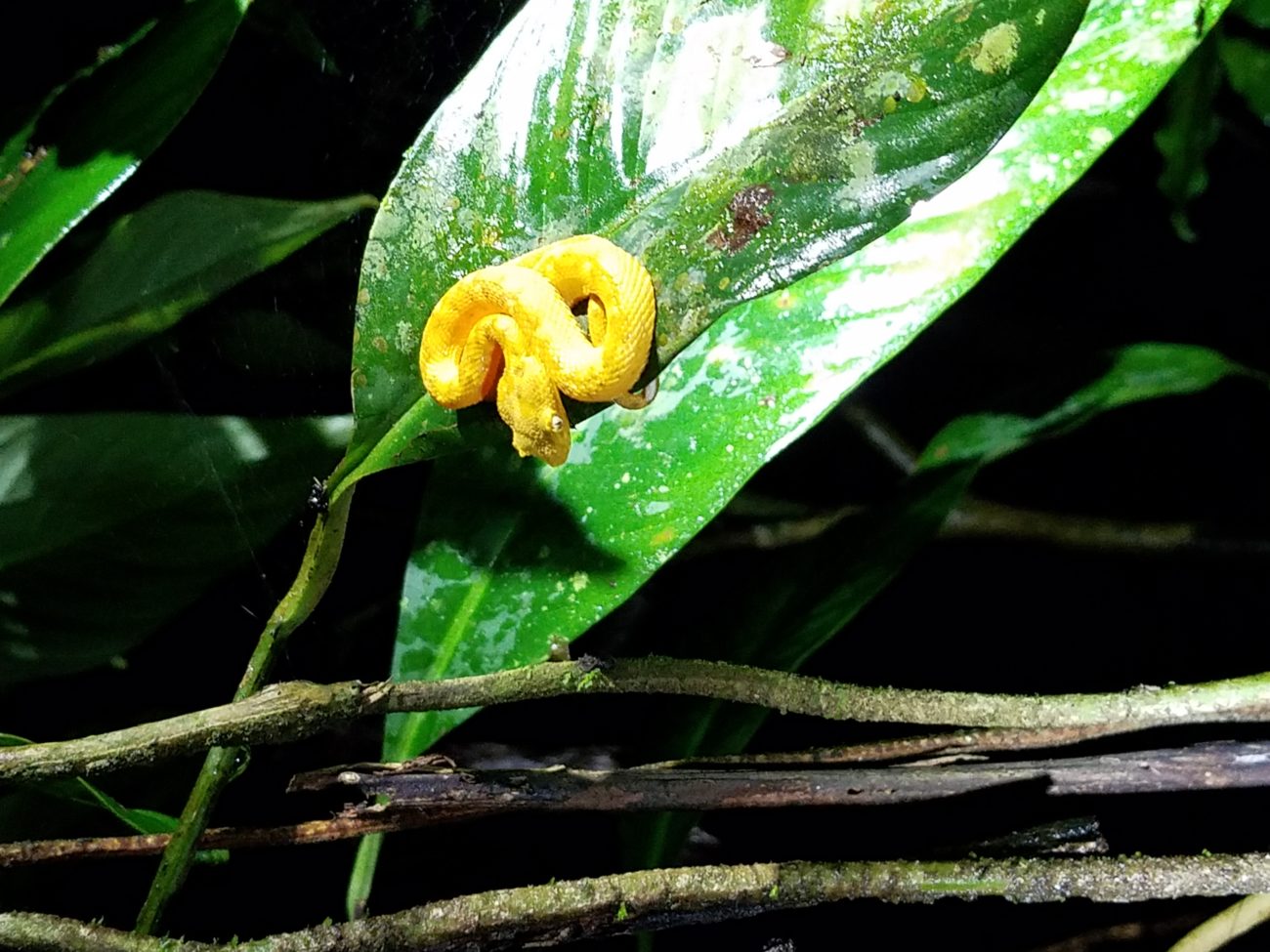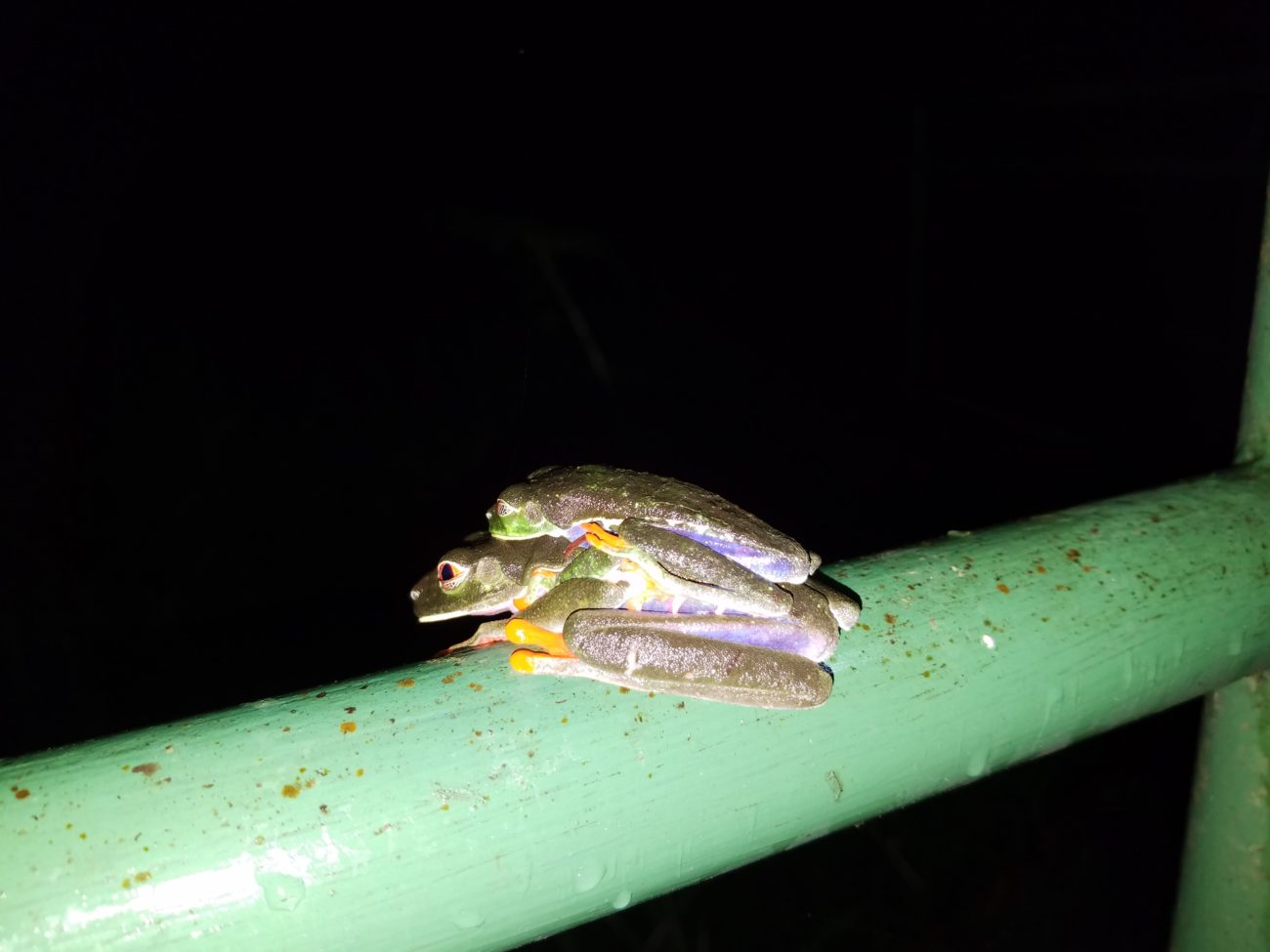Greetings bat lovers,
This is my second foreign correspondence while I am doing research in Costa Rica (you can find my first blog post further back on this site). To refresh your memories, I am conducting acoustic surveys across Costa Rica using two Wildlife Acoustics SM4BAT Full-spectrum passive recorders to look into the impacts of land use on bat activity and species assemblage. My project is part of a larger NSF funded project led by Drs. Beck and Wasserman looking at the impacts of land-use on primates. My fellow interns are researching antibiotic resistance and hormone levels in primates (these guys get to follow monkeys around and collect fecal samples), water quality of streams entering/inside/leaving forest fragments, fig trees, air quality, and the social implications of eco-tourism. I am the bat lady. We arrived here January 2nd, and after about a week of gathering our equipment and setting up, we started data collection.
What have I learned in my first two weeks here?
1. The weather is the ruler of the quality of your data. Even though it is the ‘dry season’ here in the rainforest, it rains almost every day. Hopefully it will ease up soon because a lot of my recordings are static. Currently, we are at La Selva Biological Research Station. Fortunately, they have a list of over 70 confirmed bat species found in this reserve alone. I plan to compare the findings from the recordings to the list they have to see if we find anything interesting! I have not spent much time analyzing my data yet, as we spend most of our days in the field. While my data collects itself, I am a part of a team and I help the other members collect theirs.
2. Sleep and food are paramount. Field work is no joke and even though I work hard to get 8 hours of sleep a night, I always want more. Those of you comfy in your beds with no assigned time to wake up, I am jealous until mid-March. All of us have already lost weight and our pants are getting baggy even though we eat rice and beans almost every meal! I hope to be super fit by the time I get back to the US.
3. It is very important to get along with your teammates. We are going to be together for 10 weeks, every single day. I love my team and we are making amazing memories here in the jungle. I am excited to get to spend a few days off in Manuel Antonio, hanging out and laughing on the beach with a coconut in my hand! If we did not get along, this would be a very different experience.
4. I am very lucky to have such supportive friends, family, and colleagues. The constant encouragement from everyone makes being away from home very easy. That being said, this is a marathon, not a sprint! I have 8 weeks left and I know at some point all of us will need some TLC and a shoulder to cry on when we are just missing that comfort of home. But I love traveling and know I am fortunate to have such an amazing opportunity to conduct funded research in such a beautiful country on such awesome animals. We’ve done some really cool things: walked across Costa Rica’s second-longest bridge in Tirimbina, climbed a 46 meter high tower overlooking the forest canopy where I got to watch Howler monkeys and White-faced Capuchins flit through the trees just 50 feet away, gone on night hikes and seen Eyelash Vipers and Red-eyed tree frogs, and watched rivers double in depth overnight.
5. It’s all worth it for the bats! So far, I’ve seen Proboscis bats and Greater White-lined bats every day when I walk out of my cabin. I’m sure I will see more species as time goes on. But getting to see their little faces and watching them leave every night to feed is such a rewarding experience. Everyone I talk to is eager to learn all of the fun facts I can throw at them. Many people are surprised to find out not all bats are vampiric (actually less than 1% of the approximate 1200 species drink blood). Anything I can do to improve the understanding, empathy, and appreciation for these bats, I will!
In a couple of weeks the group and I will be leaving for Quepos/Manuel Antonio where we will be doing our research in the National Park and surrounding land. This is a neat tourist town where we will certainly encounter many people who may or may not be familiar with eco-tourism. While my research is going steadily and everyone I talk to is very, very interested in it, I have received disheartening news from the girl doing the social research. She is conducting surveys with as many people as she can, and she has found that many of her subjects have very negative views of bats. Hopefully I, you, and everyone who comes into contact with the Austin Bat Refuge can help change the stigma associated with bats over time to where they can be loved and appreciated for their insane evolutionary history, ecosystem services they provide, and their wonderful personalities.
As always, feel free to email me for any questions or comments (ahall6@stedwards.edu)
Tata for now

My Gear – Wildlife Acoustics SM4BAT Full-spectrum passive recorders

Eyelash Viper

Red-eyed tree frogs
